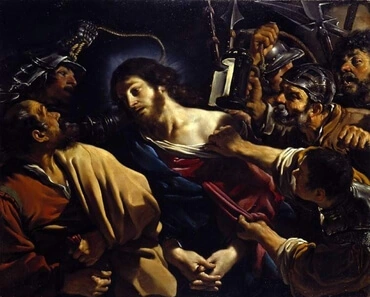Explanation of John 1:9
By Brian David

When we hear the word "truth," we tend to think of statements that are rather cold, dry and academic. That kind of truth, however, is a form taken to the most specific, external levels; at its heart truth is simply an expression of love, and the closer it is to that love the more dynamic, warm and creative it is.
Think, for instance, of a beautiful picture sent from one person to another through computers. The first person sees the picture, is moved by it, and wants to share it. The computer analyzes that picture as millions of tiny colored dots that can be expressed mathematically, information that can be shared. The second person’s computer gets that information, puts all the colored dots together and shows the picture so the second person can be moved as well. In the eyes of the two people, that picture is a relatively internal truth, a pretty direct container for specific feelings. In between, broken into tiny bits of information, that picture is still a truth - it still exists - but it is in much more external form, further removed from the emotional content.
The uiltimate "emotional content" is, of course, the Lord’s love, so perfect and powerful that we can only picture it by imaging a walk on the sun. It’s immediate expression is "the light" in this verse - what the Writings call divine truth. It’s like taking that pretty picture and multiplying it to the zillionth degree, until it’s so beautiful it knocks us from our feet and forces us to shield our eyes. It is the expression on the Lord’s face, if we could stand seeing it; it’s like the sound of His voice if we could stand hearing it. That picture is truth - it is a way of sharing internal states at the most extreme, exquisite level.
So how can we tap into that? How can we bring that kind of truth into our lives? The answer is that we need to be "the world," finding the light in "every man." The world represents the church, which the Writings define as "where the Lord is known and where the Word is." We have the Word, in the form of the Bible; knowing the Lord is up to each of us as an individual. "Man" here represents truth on a more external level, expressions of the Lord’s love broken down into ideas that can be applied to our lives.
What this verse tells us, then, is that if we read the Bible with the Lord’s love in mind, we will find ideas and guidelines that will lead us to be good, loving people. We can connect with the divine truth and get it in little bits that we can use.
(References: Apocalypse Explained 196; Arcana Coelestia 9407 [13])
Arcana Coelestia #3209
3209. 'The servant told Isaac all the things that he had done' means perception from the Divine Natural showing how real things stood now. This is clear from the meaning of 'telling' as perceiving, for perception is so to speak an internal telling, and therefore perceiving is expressed in historical descriptions in the Word by the verb 'to tell', and also 'to say', 1741, 1815, 1819, 1822, 1898, 1919, 2080, 2619, 2862; from the meaning of 'the servant' here as the Divine Natural, dealt with below; and from the meaning of 'the things' as real things, dealt with in 1785. From all this it is evident that 'the servant told all the things that he had done' means that Divine Rational Good perceived from the Divine Natural how real things stood now.
[2] The situation is that the rational part of the mind exists in the degree above the natural, and Rational Good within the Lord was Divine. Truth however which was to be raised up from the natural was not Divine until joined to the Divine Good of the Rational. So that the Good of the Rational might flow into the natural therefore, there had to be a means in between. This means could not be anything else than the natural which was to partake of the Divine. This is represented by the oldest servant of Abraham's house administering all that he had, 3019, 3020, for that servant means the Divine Natural, see 3191, 3192, 3204, 3206.






